Doctors Reveal The 10 Things They Would Never Let Their Own Kids Do
See if you're guilty of doing any of these ten things.
 PeopleImages.com - Yuri A | Shutterstock
PeopleImages.com - Yuri A | Shutterstock Dr. Shilpa, a neurodevelopmental pediatrician, took to Instagram to ask a group of her immediate family and friends, who also happen to be doctors, what they would never let their children do after personal experiences within their own professions.
From neurosurgeons to cardiologists, the parents/doctors shared a variety of activities that might have parents thinking twice for a good reason.
10 things that doctors would never let their own kids do
1.Eat uncut grapes
 Dmitry Kalinovsky | Shutterstock
Dmitry Kalinovsky | Shutterstock
A pediatric anesthesiologist said that she would never let her kids eat grapes without cutting them first.
This is because grapes are often a choking risk for young children. A child can choke on not only the seeds but also the skin.
Data suggests that in children between the ages of 0 and 14, grapes are the third most common cause of food-related fatal choking episodes after hotdogs and candy.
YummyToddlerFood recommends cutting all grapes for children under 4 and also ensuring that they are seated while eating them.
2.Ride an ATV
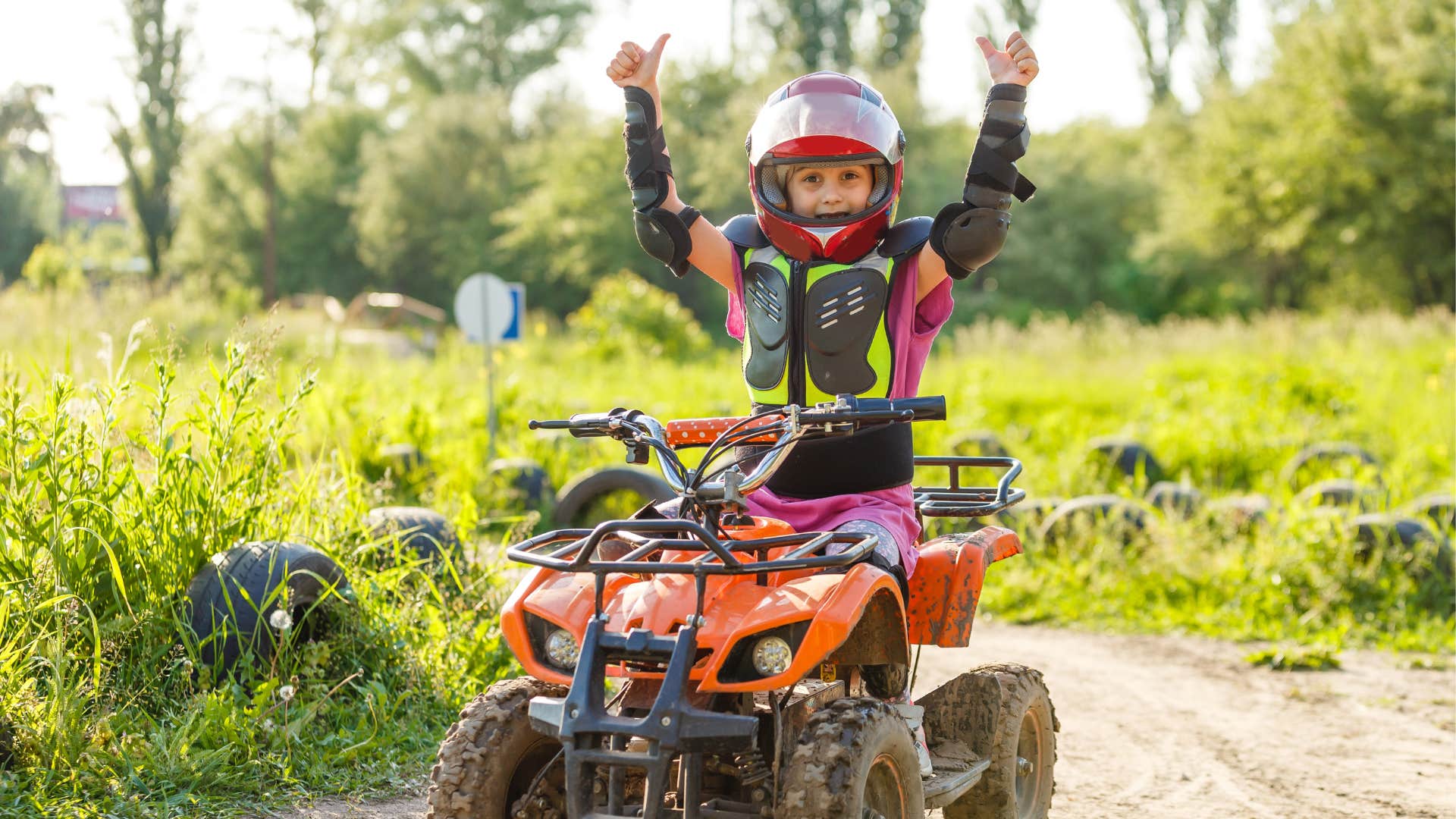 Andrew Angelov | Shutterstock
Andrew Angelov | Shutterstock
A neurosurgeon said that he wouldn’t let his son ride on an All Terrain Vehicle (ATV) due to the high risk of traumatic brain injury.
In 2017, People Magazine reported that Jamie Lynn Spears' daughter Maddie was hospitalized after an ATV accident. While Maddie ended up being okay, others were not as lucky.
A CPSC data report showed that between the years 1982 and 2015, more than 3000 children under the age of 16 were victims of ATV-related accidents.
3.Play with toys that contain a button battery
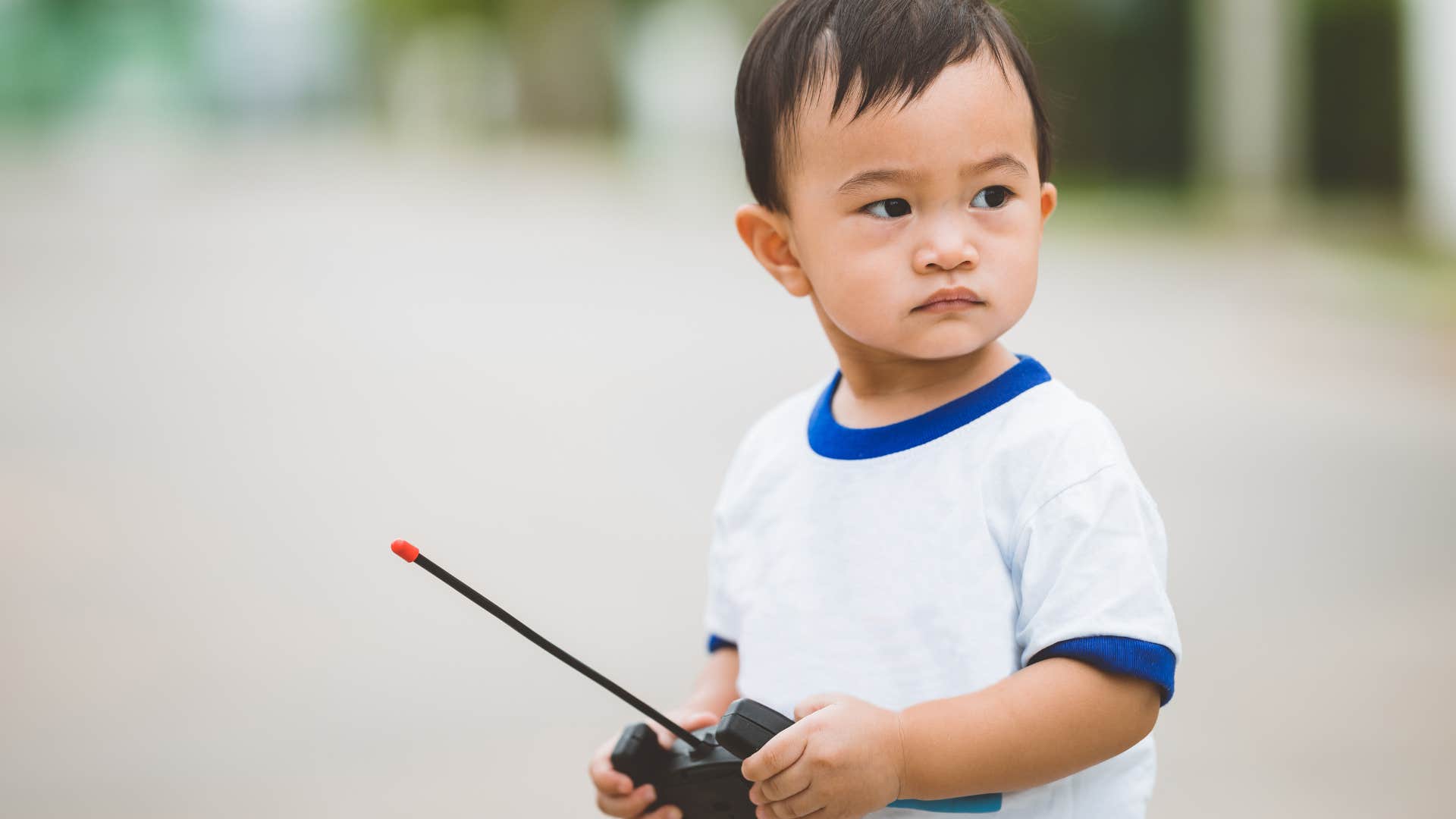 Teerawat Anothaistaporn | Shutterstock
Teerawat Anothaistaporn | Shutterstock
A gastroenterologist said that he would never let his child play with toys that had button batteries in them.
Button batteries are circular batteries similar in appearance to silver coins. They are often used in small robotic children's toys. Some are so tiny that a child could consume them without a parent's knowledge and possibly choke or worse.
According to healthychild.org, when these small button batteries come in contact with bodily fluids, the battery generates a current.
They explained, "That current produces small amounts of sodium hydroxide, a harsh corrosive similar to lye. If the battery gets stuck somewhere in the body, the lye burns a hole at that spot. Infection usually follows.
The result can be serious injury and illness, long-term disability, or even death."
4.Neglect to teach them about menstrual cycles
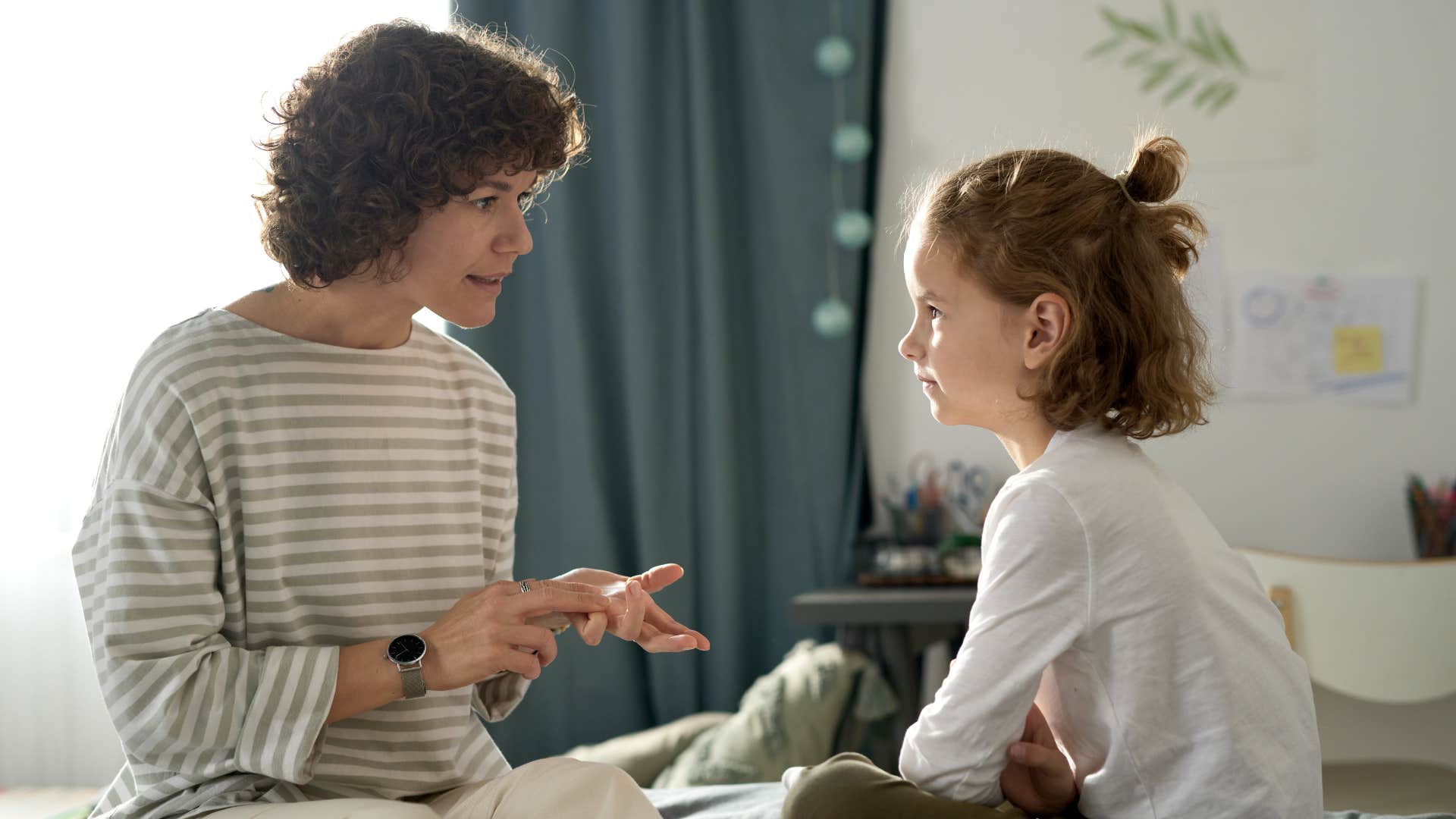 Media_Photos | Shutterstock
Media_Photos | Shutterstock
An obstetrician-gynecologist said that she would never let her children go to school without teaching them about periods and birth control.
In an interview with Mayo Clinic Kids, pediatrician Dr. Asma Chattha explained, "I always tell parents to think of the age at which you want to start talking to your children about puberty and then drop it down, then drop it down some more. That’s where you want to begin. It’s not just periods because, hopefully, all of us are going to be talking to our children about changes in their bodies and puberty."
She went on to explain how even if your child will never menstruate, it's still an important conversation. "It’s something that they’re going to come across in some way, shape, or form, even if they’re not born with ovaries or a uterus, Dr. Chattha shared.
She went on to say, "I think it’s very important, and like, when we're talking about body basics, boys need to know all of this as well. Especially as bodies are changing, they need to be respectful and sensitive to some of the changes that both genders are going to be experiencing."
5.Play on a home trampoline
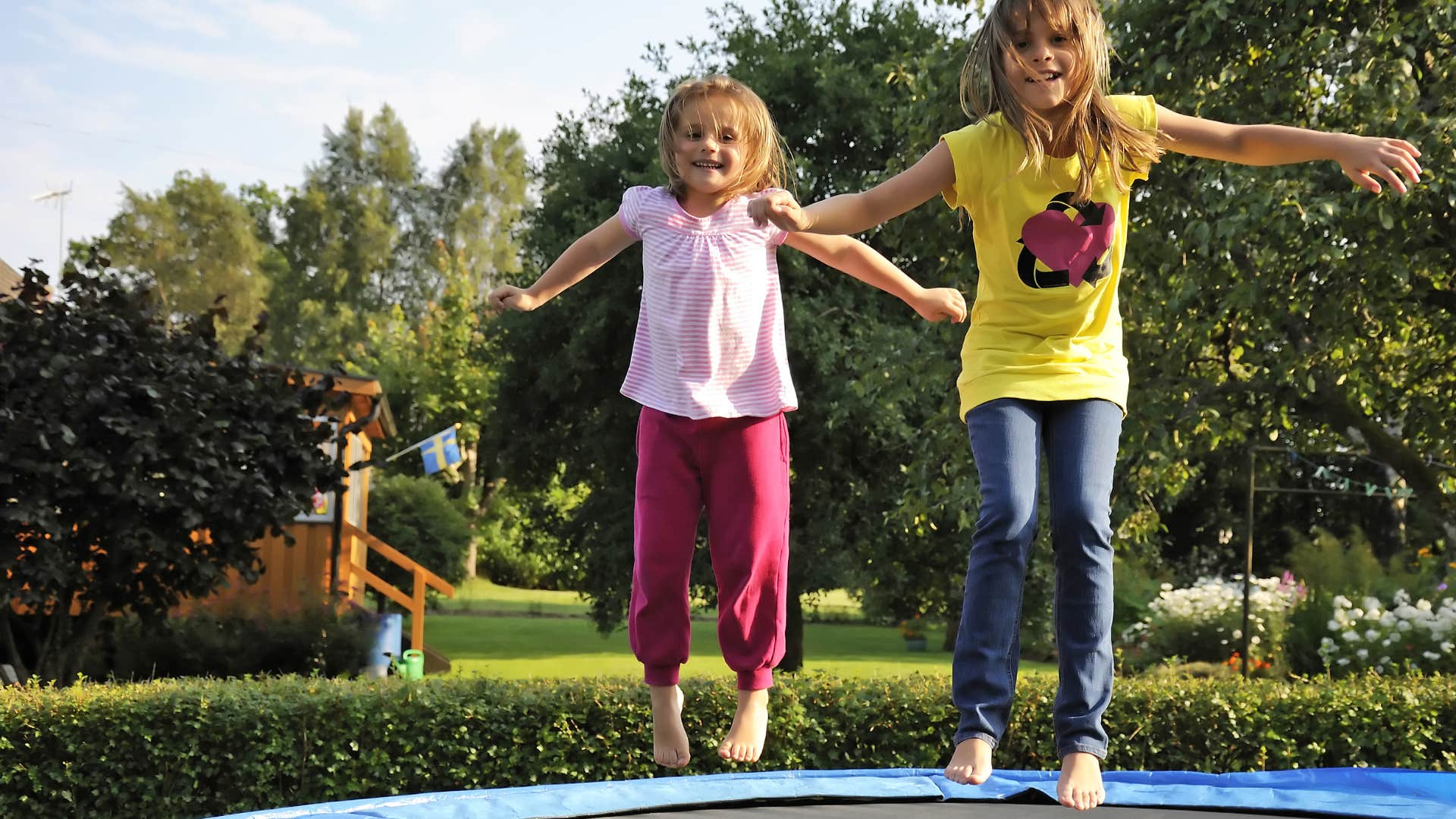 Piotr Wawrzyniuk | Shutterstock
Piotr Wawrzyniuk | Shutterstock
An orthopedic spine surgeon said that he would never let his children play on a home trampoline.
According to the American Academy of Pediatrics, from 2004 to 2008, trampoline injuries have risen above 100,000 incidents. Many of these incidents resulted in bone fractures to legs, arms, and even spines.
Emergency physician Dr. Leana Wen told CNN that her family does not own a trampoline, and she does not allow her children to play on trampolines at friends' houses. To further her point, she said, "The American Academy of Pediatrics issued a statement in 2012 to strongly recommend against the use of recreational trampolines in kids.
The academy reaffirmed this in 2020, citing the frequency of injury as well as the possibility of severe, irreversible injury, notably permanent neurological damage from injuries to the head and neck."
6.Text and drive
 Shakirov Albert | Shutterstock
Shakirov Albert | Shutterstock
Although most parents would hope that their teen drivers keep their phones out of their hands while behind the wheel, a doctoral internist said he would make sure that his children never text and drive.
Unfortunately, a 2015 survey by the Department of Motor Vehicles (DMV) found that 42% of teens admitted to texting while driving.
It certainly can't hurt to drill the point home, however, even if it means sharing some scary statistics with kids about deaths caused by texting and driving accidents.
According to the DMV, road accidents involving distracted drivers on their phones lead to the highest teen mortality rate.
7.Sleep in contact lenses
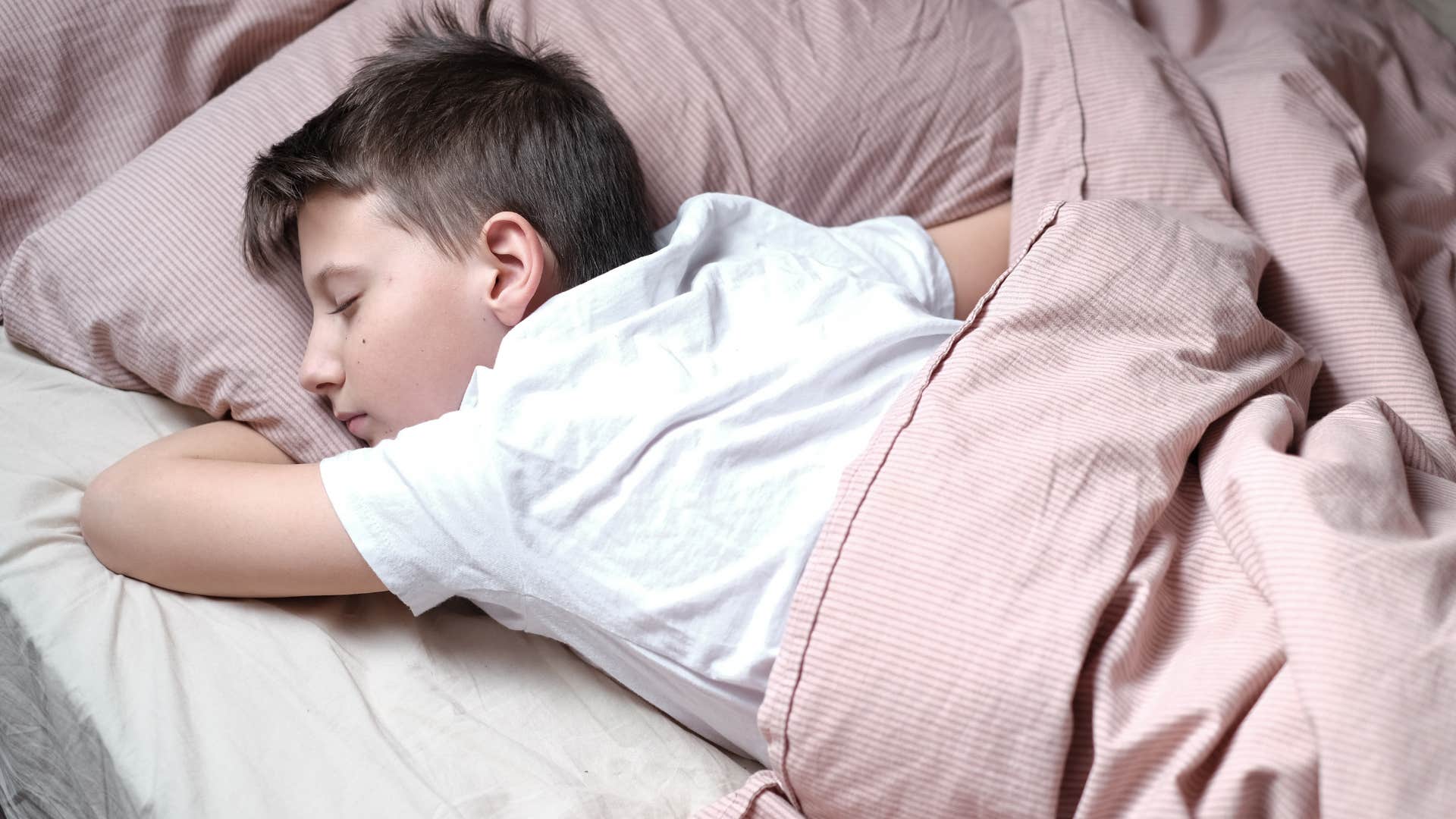 Lelechka | Shutterstock
Lelechka | Shutterstock
An ophthalmologist said that she would never let her children sleep in contact lenses.
This is because sleeping in contacts can increase your chances of getting an eye infection. In a study done by the National Library of Medicine, 85% of young adolescents between the ages of 12-17 reported that the one behavior that put them at risk for getting an eye infection was accidentally leaving contact lenses in their eyes when they slept.
Repeated infections and infections that go untreated for extended periods of time can ultimately result in damage to the cornea. Some bacterial infections, as noted by Healthline, can even lead to vision loss.
8.Feel guilty about their food choices
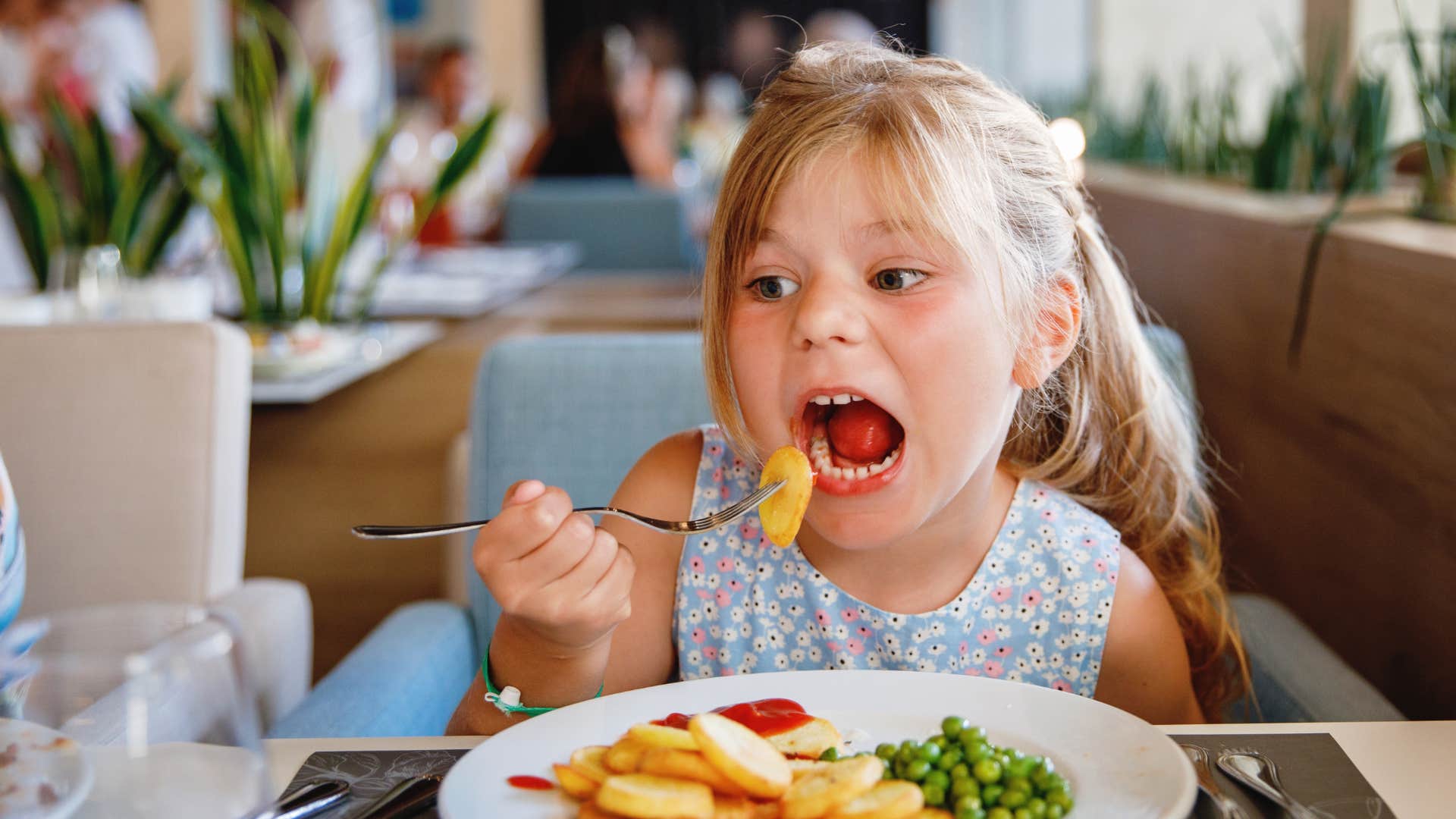 Irina Wilhauk | Shutterstock
Irina Wilhauk | Shutterstock
A gastroenterologist specializing in obesity medicine said that she would never let her children feel guilty about their food choices.
Eating and food, in general, is morally neutral. What that means, according to the Alliance for Eating Disorders, is that foods are not inherently "good" or "bad" as they are often labeled by advertisers and diet culture.
Teaching children about the moral neutrality of food is important, especially because attaching labels to food can lead to an unhealthy relationship with basic nourishment and ultimately result in disordered eating.
Instead, parents should practice healthy eating around their kids and avoid restriction and food labeling while simultaneously providing them with a balanced diet.
9.Use a vape
 Rawpixel.com | Shutterstock
Rawpixel.com | Shutterstock
A cardiologist said he would never let his children use a vape. According to the Centers for Disease Control and Prevention (CDC), "There are no safe tobacco products."
It's a simple yet powerful statement.
Additionally, according to KidsHealth.org, teens who vape are not only more likely to become addicted to nicotine and actually start smoking, but they are also at higher risk for developing anxiety and depression.
10.Go to a sleepover
 New Africa | Shutterstock
New Africa | Shutterstock
Dr. Shilpa appeared as the last doctor in her video and stated simply that she would never let her child go to sleepovers.
Sleepovers have become a hot topic in recent years, with many parents jumping on the bandwagon of no-sleepovers. Safety concerns are the primary roadblock, and while those concerns are understandable, Phyllis Fagell, a school counselor and author, told USA Today that overprotective parenting from fear isn't the answer either.
She said, "There's a fine line between raising kids who understand things like good touch, bad touch, when to heed their spidey sense that something isn't safe, how to call home for help, when to extricate themselves from a bad situation and ... raising kids who are afraid to go out in the world."
Ultimately, parents have to weigh the pros and cons themselves and factor in everything from how well they know their children's friends and their parents, the age of the kids, and their child's own capabilities.
Sylvia Ojeda is an author with a decade of experience writing novels and screenplays. She covers self-help, relationships, culture, and human interest topics.

